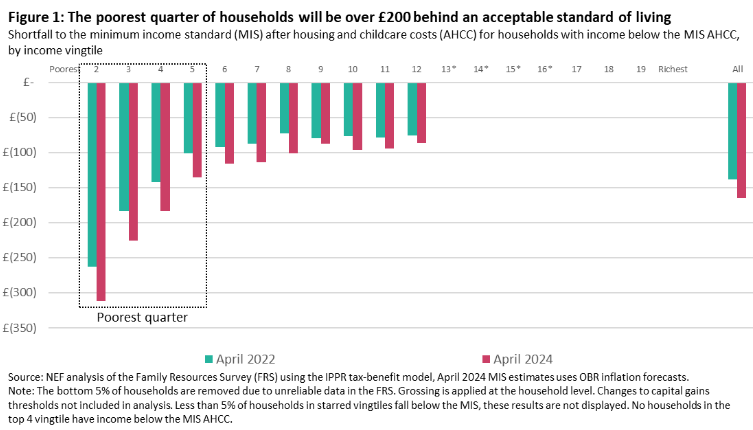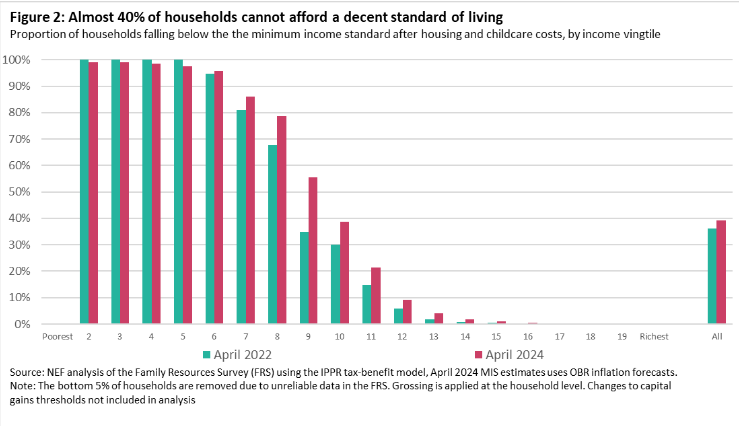Poorest households will be over £200 per week short of acceptable standard of living following Autumn Statement
Four in ten households will be unable to afford the cost of essentials like household bills or a trip to the dentist by April 2024 as the rising cost of living outstrips income growth for 60% of households
22 November 2023
The poorest quarter of households will be £210 per week short of an acceptable standard of living by April 2024 as the measures announced by the Chancellor today fail to protect those who are struggling the most, new analysis by the New Economics Foundation (NEF) has found (Figure 1).
Researchers found that since April 2022 the gap to an acceptable standard of living will have grown by £40 per week for the poorest quarter of households. Meanwhile households with the highest 25% of incomes will have seen their income outstrip the rising cost of living by £60 per week on average.
In April 2022, almost 10.2 million (36%) households were unable to afford the cost of everyday essentials, such as putting food on the table or replacing clothes. By April 2024 this will have risen by 750,000 to 11m (39%) households. (Figure 2)
Lydia Prieg, Head of Economics at NEF, said:
“While the Chancellor spoke about putting money into people’s pockets, the reality is that this Budget will make many people poorer.
“The Government had an opportunity today to provide the support people need to get through this unprecedented cost of living crisis and kick-start the economy. Instead, we see that even more people are going to be unable to afford what everybody deserves – an acceptable standard of living.
“The Chancellor may claim that his plan is working but our analysis shows that for most people this simply is not the case. What we should have seen today is a plan to raise prosperity for this and future generations, by investing in our public services and green industries, as well as ensuring benefits are properly linked to the cost of living.”
The analysis looked at all income growth between April 2022 and April 2024, including higher earnings, social security uprating, previous cost of living support and policies announced by the chancellor today. The rise in incomes was then compared to the estimated increase in the minimum income standard (MIS), a measure of what people consider to be an acceptable standard of living. It is the UK’s leading approach to measuring living standards based on need and is also used to calculate the “real” Living Wage paid by companies including Ikea and KPMG.
Notes


Topics Work & pay Social security






